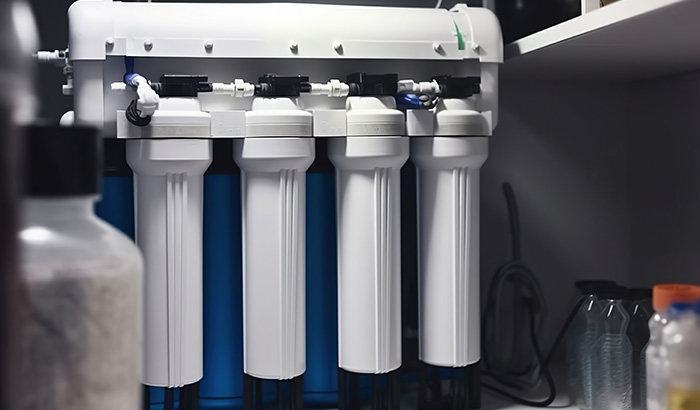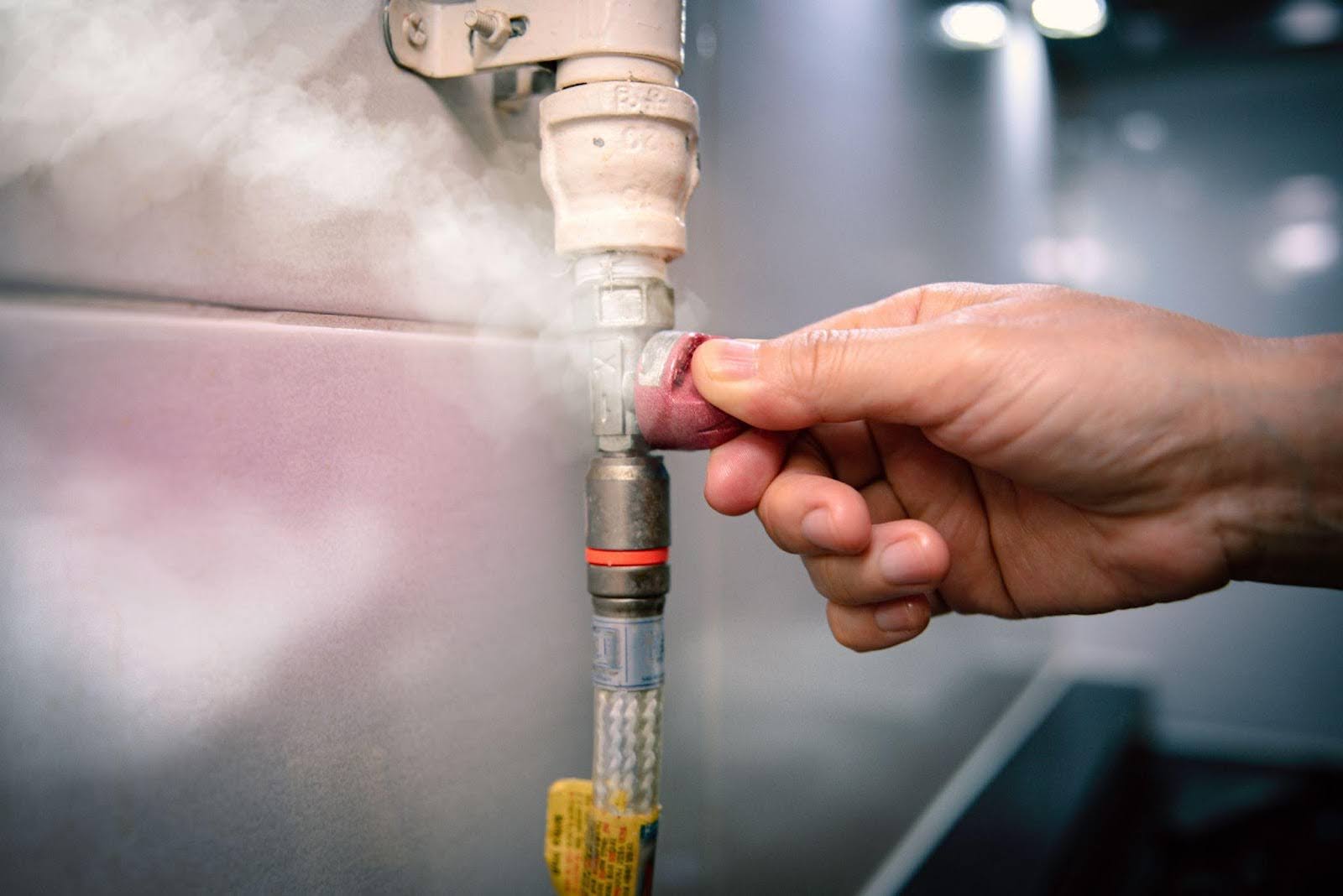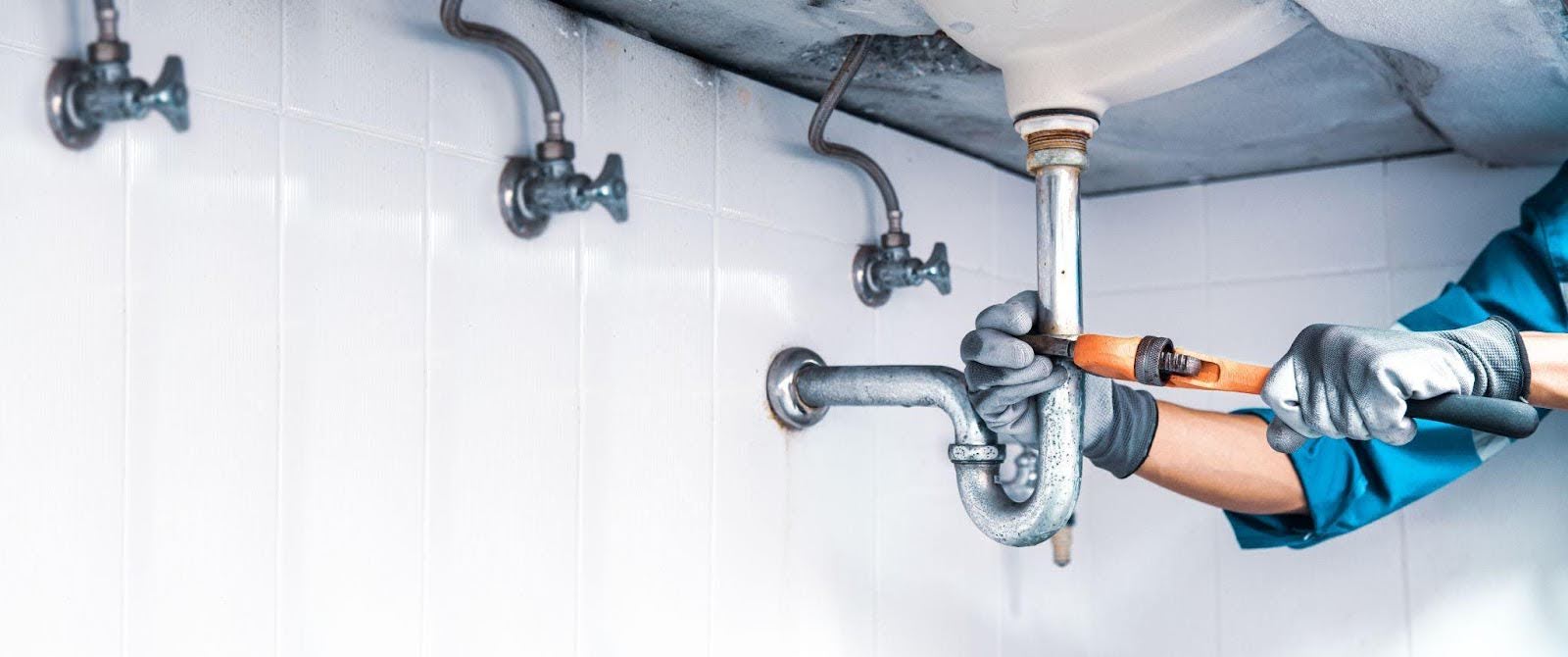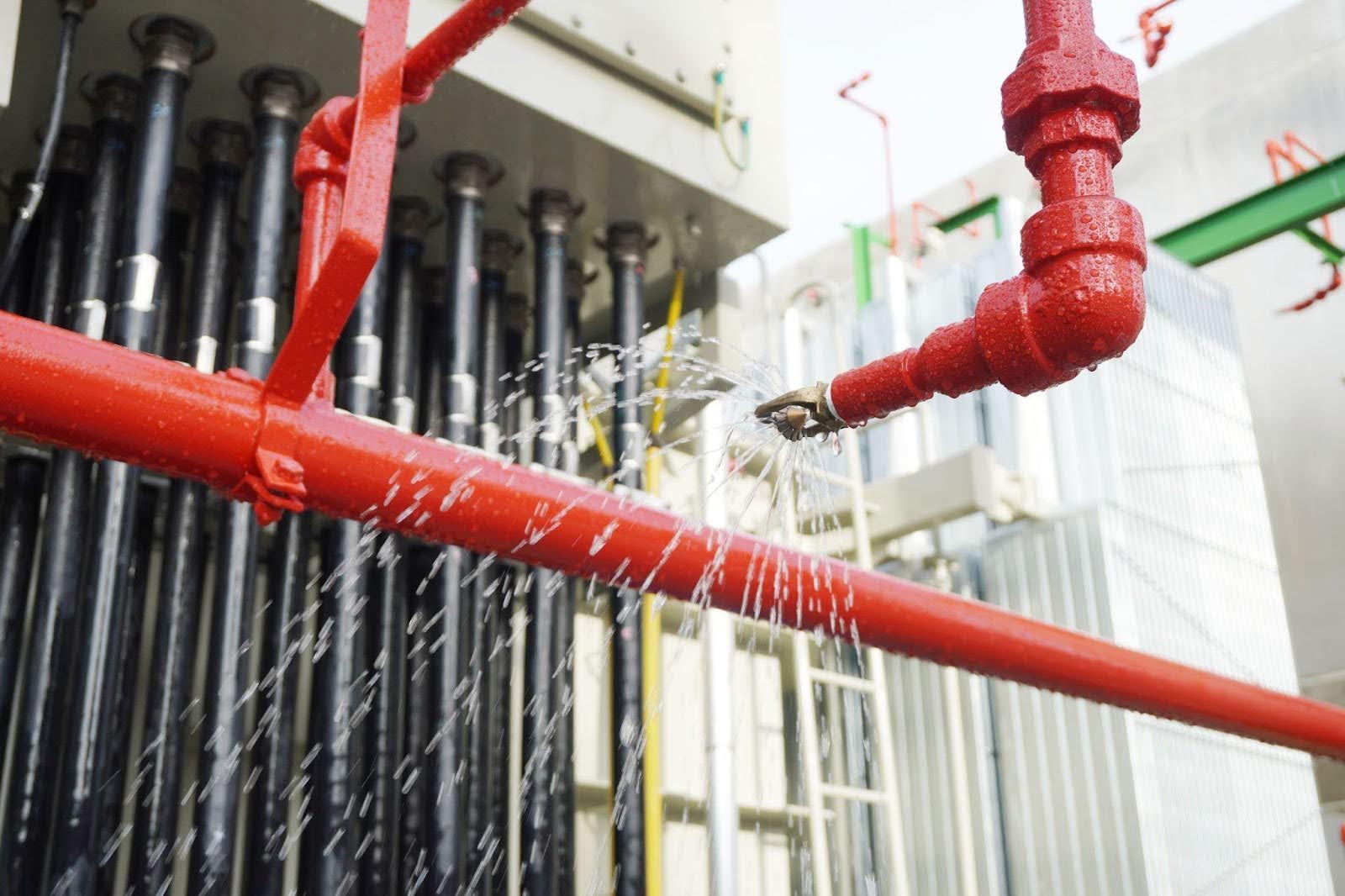When you turn on the tap in your kitchen, clean, drinkable water flows out — all thanks to a water treatment system. How do you make sure your water stays that way? What exactly is a water treatment system? Is having water filtration systems at home even worth it?
We are here to help you navigate the waters of treatment systems, ensuring that your home is equipped with the best water treatment system to meet your specific needs.
From understanding the nuances of water quality in your area to exploring the benefits of advanced water filtration systems at home, this guide is your compass. So, let’s set sail together, exploring the intricacies of water treatment and how these methods provide you with clearer, cleaner, and safer water in your home.
Understanding Water Quality
To start off, it’s best to have a foundational understanding of water quality and the factors that influence it. Water, a vital resource in our daily lives, varies in quality depending on its source and the path it takes to reach our taps.
The Journey of Water: From Source to Tap
Water undergoes a long journey before it ever reaches our homes. It originates from rivers, lakes, and underground aquifers. As it travels, water may pick up natural and man-made contaminants, ranging from minerals to industrial by-products.
Identifying Common Contaminants
Not all water is the same. Contaminants vary widely depending on geographical location and local industrial activities. Bacteria, heavy metals, and chemicals may end up in water supplies, posing health risks and wreaking havoc on household appliances.
In Utah, for example, Chloride and nitrate (NO3) are particularly prevalent, often stemming from agricultural activities, urban runoff, and natural sources. These substances have been identified as the primary inorganic groundwater pollutants in the state. Understanding your local geography and pollutants will help you choose the best water treatment systems for your home.
Recognizing the Signs
Contaminated water is often identifiable by taste, color, or odor changes. A metallic taste, for instance, could indicate the presence of lead or other heavy metals, while a chlorine smell might suggest excessive use of disinfectants. Cloudiness or discoloration could be a sign of sediment or rust.
Choosing the Right Tests
Once you’ve identified potential issues through sensory observation, the next step is to conduct more precise assessments. Water testing kits are available for home use, providing immediate results for common contaminants like lead, chlorine, and bacteria.
Interpreting the Results
Understanding the results of your water tests will help you make informed decisions about water treatment.
The Environmental Protection Agency (EPA) has established Maximum Contaminant Levels (MCLs) for many contaminants. MCLs serve as a benchmark for water safety. Compare your test results with these standards to determine if your water meets the required safety levels.
Types of Water Treatment Systems
The first step to enhancing your home’s water quality is understanding what water treatment systems are available. Each system offers unique benefits and targets specific contaminants.
Let’s dive into the different types of water treatment systems to find the perfect fit for your home.
Activated Carbon Filters: The Basics
Activated carbon filters are one of the most common types of water filtration systems you can use at home. Activated carbon filters are renowned for their efficiency in removing chlorine, sediment, and volatile organic compounds (VOCs) from drinking water.
These filters work through a process called adsorption, where contaminants stick to the surface of activated carbon particles as water flows through the filter. The filters are made from organic sources like coconut shells treated to create a porous structure with a large surface area, making it highly effective for trapping impurities.
These filters are noted for their ability to improve the taste and odor of water, making it more pleasant to drink. They are also user-friendly and require minimal maintenance, usually regular filter changes.
However, these filters are less effective against minerals, salts, and microorganisms, and their filtering capacity diminishes over time, necessitating timely replacements. While activated carbon filters play a vital role in enhancing water quality, they are most effective when used in conjunction with other water treatment systems to ensure comprehensive water purification.
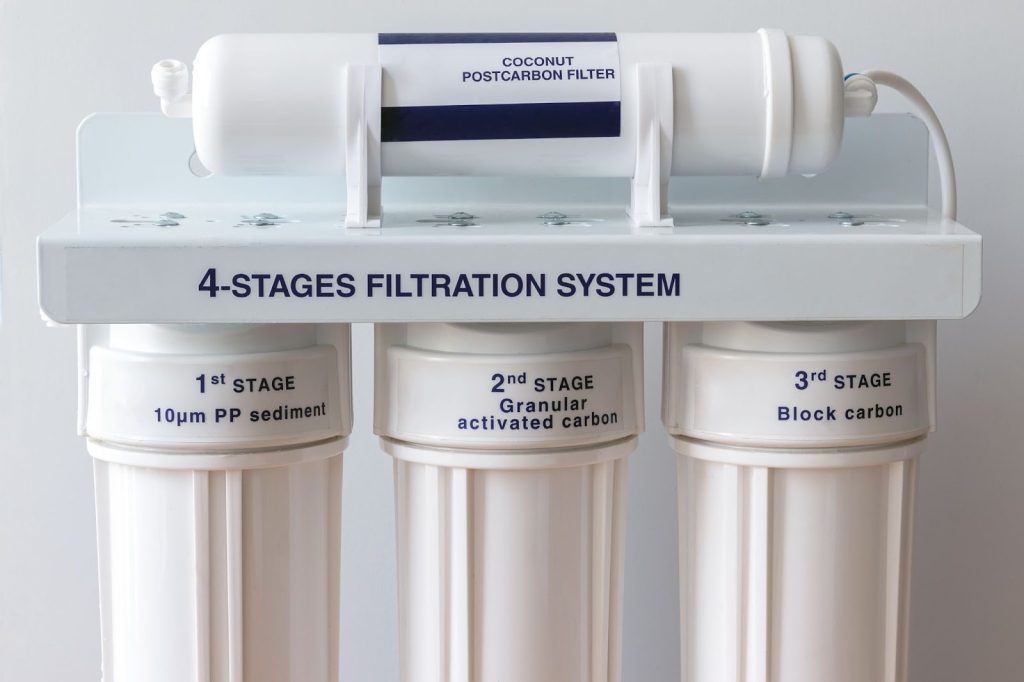
Reverse Osmosis: A Deeper Dive
A water filtration system with reverse osmosis is a highly efficient system capable of removing a broad spectrum of contaminants to provide exceptionally pure water.
This process works by forcing water through a semipermeable membrane, which acts as a barrier. This membrane allows water molecules to pass through while trapping contaminants like salts, bacteria, and chemicals on the other side. The result is clean, safe drinking water, free from impurities and unwanted tastes or odors.
While reverse osmosis systems are highly effective and significantly improve water quality, they require a substantial amount of water to function, and the filtration process is slower compared to other systems. They need regular maintenance, including filter and membrane replacements, to ensure ongoing effectiveness.
Ion Exchange: Targeting Hardness
Ion exchange systems play a major role in water treatment, particularly with hard water. These systems work by swapping hardness ions like calcium and magnesium with softer ions like sodium or potassium. This process prevents scale buildup in pipes and appliances while improving their longevity and efficiency and contributes to better water quality in your home.
Opting for an ion exchange water treatment system is ideal in areas where hard water is prevalent. It ensures that your water is softer, which is gentler on your skin and hair, and helps maintain the optimal performance of your household appliances.
While ion exchange systems are highly effective in softening water, it’s important to note that they may not remove other contaminants like bacteria or chemicals. They are often used in conjunction with other water filtration systems at home, such as reverse osmosis, to achieve comprehensive water purification.
UV Treatment: Disinfection Without Chemicals
UV water treatment systems offer a chemical-free solution to disinfect water for homes concerned about biological contaminants. These systems use ultraviolet light to inactivate harmful microorganisms such as bacteria, viruses, and parasites. The UV light disrupts the DNA of these contaminants, rendering them harmless and unable to reproduce.
This water treatment method is highly effective, providing rapid disinfection without the need for harsh chemicals. It’s an ideal choice for households looking to safeguard their water against microbial threats while committing to eco-friendly practices.
It is important to note that UV treatment specifically targets biological contaminants and may need to be paired with other water filtration systems, such as activated carbon filters or reverse osmosis, to address a broader range of impurities.
Distillation: Purity Through Simplicity
Distillation, one of the oldest water purification methods, relies on heat to produce clean water. This process involves heating water to create steam and then letting the steam condense back into liquid form, effectively leaving impurities and contaminants behind. This method can remove a wide range of contaminants or pollutants, including bacteria, viruses, minerals, and chemicals.
While distillation provides a high level of purity, it has high energy requirements and a slower processing time compared to other water treatment systems. This method might be most suitable for homes with specific needs for ultra-pure water or in scenarios where other water treatment options are not feasible.
Benefits of Using Water Treatment Systems
Enhanced Water Quality
The most immediate and noticeable benefit of using a water treatment system is the improvement in water quality. Water filtration systems effectively eliminate a wide array of contaminants, ensuring that the water flowing from your tap is safe to drink while also being clear, clean, and great-tasting.
The improved water quality extends beyond drinking water, positively affecting the water you use for cooking, cleaning, and bathing. You can taste, see, and feel the difference using clean, filtered water.
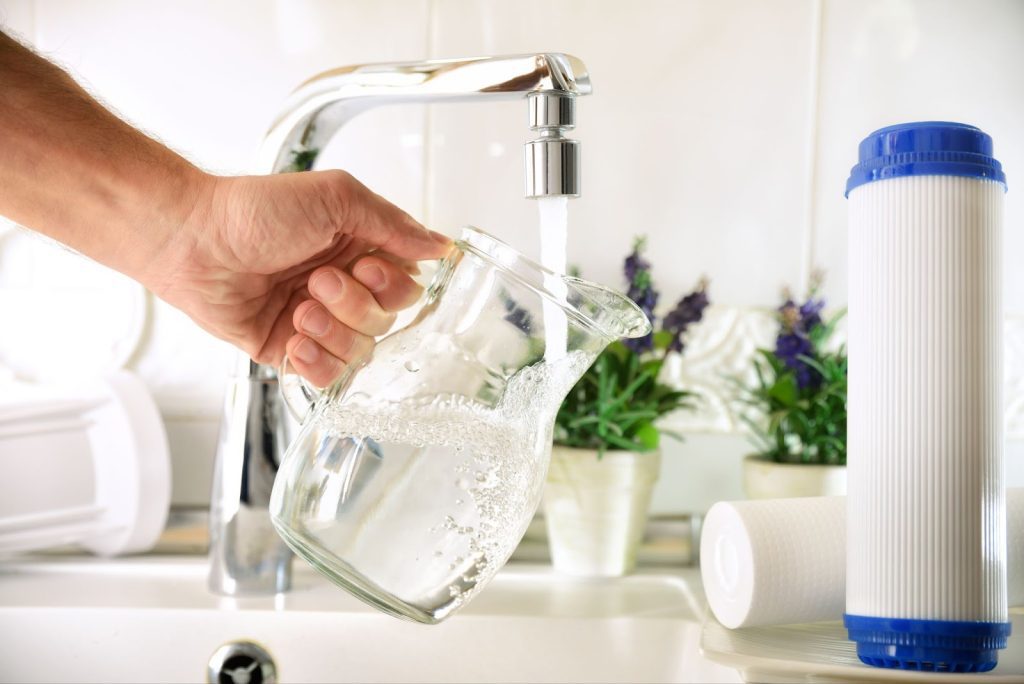
Environmental Impact
Choosing a water treatment system is a proactive step towards reducing your environmental footprint. Efficient water treatment systems promote sustainable water use, which plays a part in the broader effort to conserve our planet’s precious resources. A water treatment system reflects a commitment to fostering a greener, more sustainable world.
Longevity and Protection of Appliances
Water treatment systems provide cleaner water and protect your home’s appliances from the damaging effects of hard water and contaminants. This protection results in an extended appliance lifespan, reducing the need for frequent replacements and repairs. Softer water also means less white residue on your dishes when they come out of the dishwasher.
Trust Salisbury Plumbing for Your Water Treatment Needs
At Salisbury Plumbing, we understand the unique challenges that Utah’s water presents to homeowners. Our team of experts is well-versed in Utah’s water treatment regulations, guaranteeing every system we install and maintain meets the state’s rigorous requirements.
As a team of professionals, we are committed to delivering water treatment solutions that stand the test of time. We’re here to provide you and your family with clean, safe, and high-quality water.
We take pride in our extensive knowledge of water filtration systems for home use, including advanced water filtration systems with reverse osmosis. We tailor solutions to meet the needs of your home. We are here to guide you through every step of the process, from selecting the right water treatment system to ensuring its optimal performance through regular maintenance.
When it comes to safeguarding your home’s water quality, Salisbury Plumbing is your go-to partner. Trust us to be your ally in achieving a healthier, happier home. Call us at 385-42-5952 or contact us through our website to get a free estimate.
toto slot

